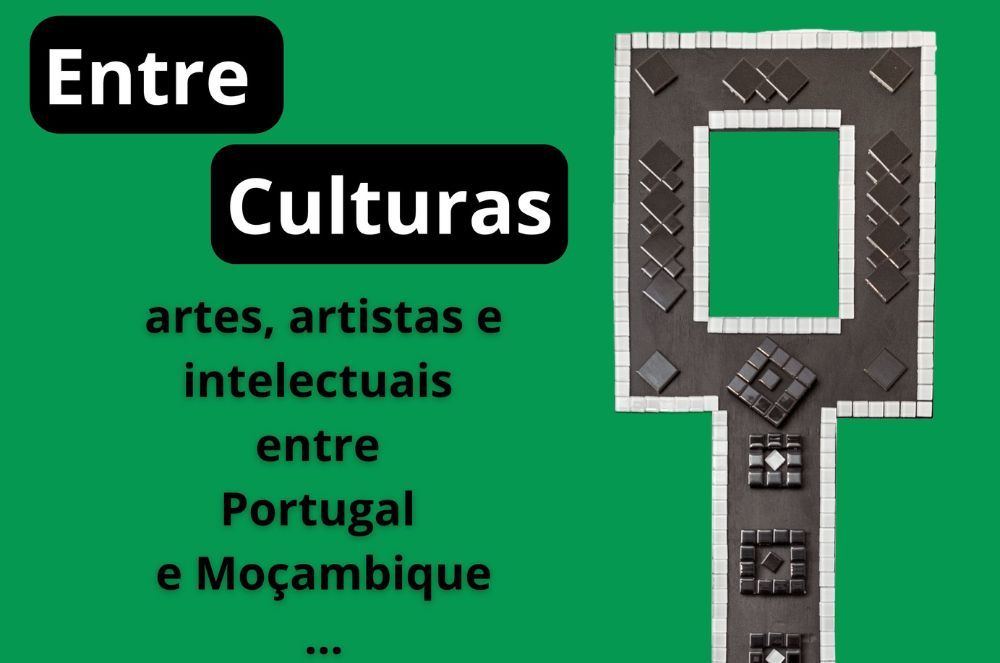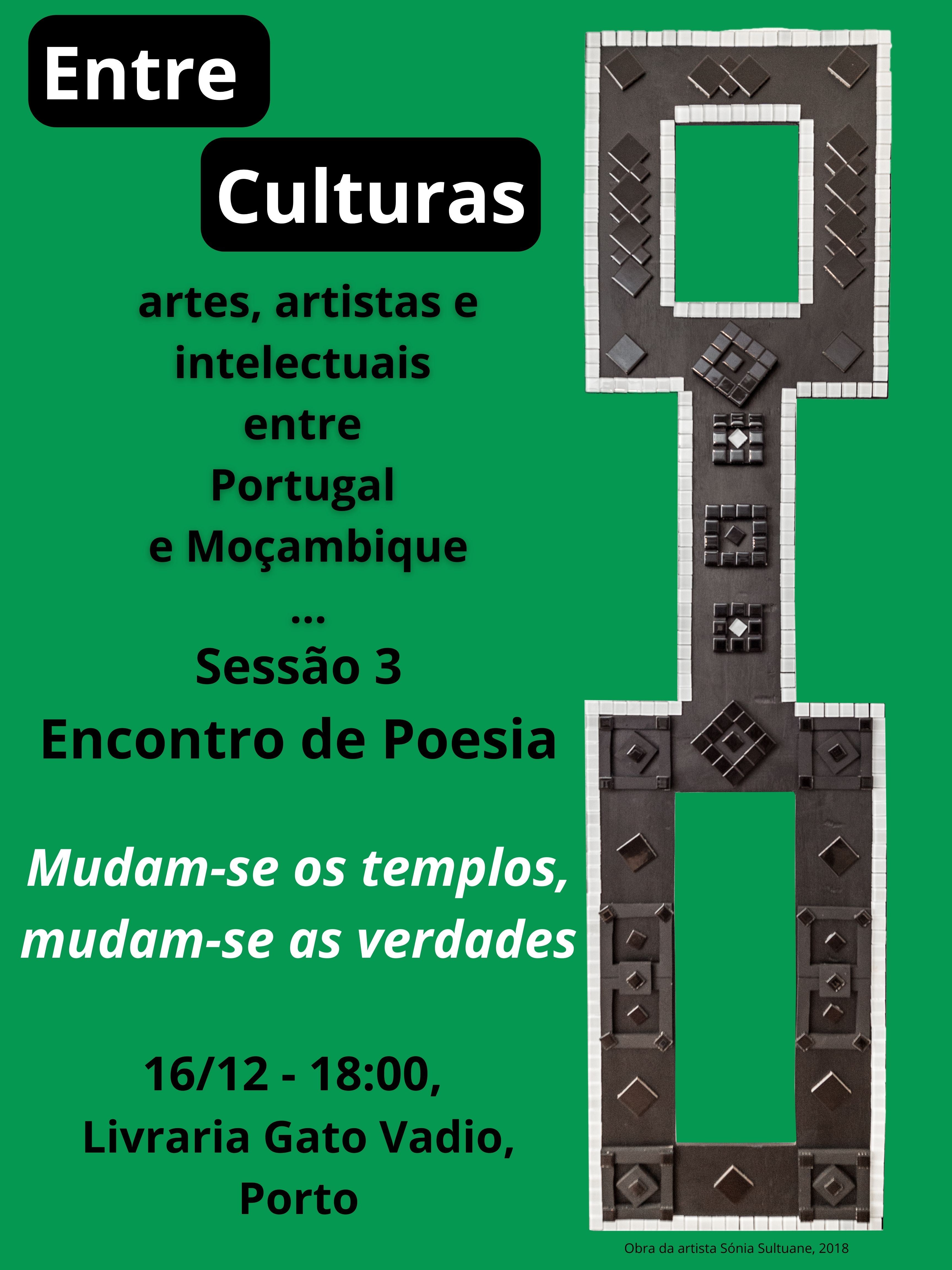Gato Vadio hosts the third session of the cycle “Between Cultures: Arts, artists and intellectuals between Portugal and Mozambique”

The third session of the cycle "Between Cultures - Arts, artists and intellectuals between Portugal and Mozambique" takes place on 16 November at 6pm, at Gato Vadio, and will gather poets in a celebration of mozambican poetry.
The cycle “Between Cultures - Arts, artists and intellectuals between Portugal and Mozambique'' is organised by CICANT researchers Lurdes Macedo and Vanessa Rodrigues, together with researcher Nuno Bessa, in partnership with bookshop Gato Vadio. The series aims to open up the possibility of discussion about issues related to the dialogue between Portugal and Mozambique from the point of view of the arts and culture. Based on three axes - the Arts, artists and intellectuals who have been (or are being) located between the two countries - the project consists of programming, organising, publicising, and holding eight talks - one per month between October 2023 and May 2024 - with different specialists. At each talk, the guest speaker will launch the topic and the discussion. The guest will expand on the topic based on the results of studies, research, or projects in which he or she has been involved, encouraging participants to reflect on and discuss the topic being analysed.

About the Session
"Temples change, truths change"
From an early age, poetry was one of the most important expressions of Mozambique's voices. This is proven by the large number of excellent but little-known poets who were born and/or worked in Mozambique and who found inspiration for their work there. If Rui de Noronha is considered the lone forerunner of modern poetry in Mozambique, Noémia de Sousa, Glória de Sant'Anna and Reinaldo Ferreira are among those who soon afterwards opened their horizons to the best of what was being done in the Portuguese language. In 1959, Rui Knopfli published O País do Outros (The Country of Others), in a country that was also his, definitively confirming, albeit in an existential lyric, the issues of otherness and the consequences of colonialism, which had previously been inaugurated by Noémia in a distinctly Mozambican style. In the year of the start of the colonial war/ liberation struggle, 1964, José Craveirinha published his first book of poetry, Xigubo, which marked the anti-colonialist thinking of his generation, and António Quadros arrived in Mozambique to change temples and truths. Under various literary pseudonyms (João Pedro Grabato Dias, Frey Ioannes Grabatus and Mutimati Barnabé João), Quadros revealed himself to be the creator of poetry that is rare in the culture of the language, even today kept under a thick blanket of oblivion. After independence, Combat Poetry, an instrument for building the nation project, soon succumbed to the search for the intrinsic value of the word by the poets of the Charrua Generation. This was the first literary movement after 1975, which included, among others, Juvenal Bacuane, Ungulani Ba Ka Khosa, Armando Artur, Sulemain Cassamo and Eduardo White. Nowadays, the number of poets, books and poetry soirees in Mozambique demonstrates the ever-renewed vitality of the lyric in the construction of the country's cultural identity and the interest that this literary genre arouses among young people.
In anticipation of the holiday season, several guests will bring us the poets and poetry of Mozambique, from the 1930s to the present day, either in short biographical notes or in the recitation of a set of poems specially chosen for this session.
- published 27 October 2023
- modified 15 December 2023
